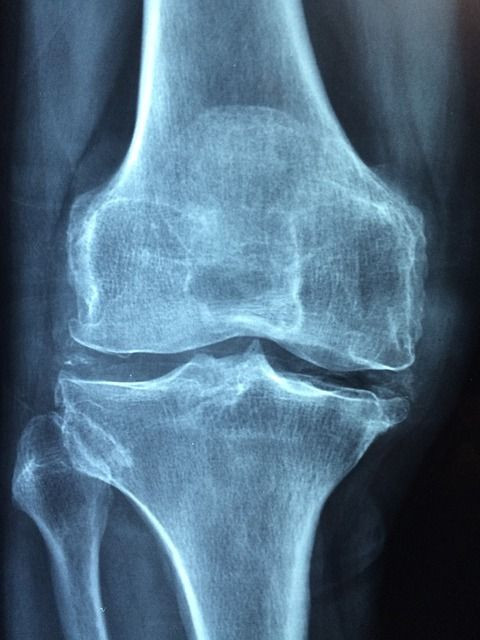Noisy Knees That Crack And Pop Could Be An Early Sign Of Osteoarthritis, Degenerative Disorder

Do your knees crack, pop, or squeak when you stand up? A new study suggests this may be an early sign of osteoarthritis. According to the research, individuals with “noisy knees,” but who do not experience knee or joint pain, may still be at heightened risk for developing the condition. However, early detection may be key in preventing it from progressing.
A new study published online in Arthritis Care & Research found that, of high-risk people who developed osteoarthritis within a year, more than 75 percent reported no frequent knee pain despite having signs of the condition on radiographic images. Rather than pain, some of these individuals had complained of noisy knees that grated, cracked, or popped when they moved. Based on these results, researchers now believe that noisy knees should be treated as a warning sign of osteoarthritis risk.
Read: New Osteoarthritis Treatment: Chemotherapy Drug Reduces Joint Pain By 40%
"This study suggests that if these people have noisy knees, they are at higher risk for developing pain within the next year compared with the people who do not have noisy knees," said Dr. Grace Lo, lead author in a recent statement. “Future studies that target people who have x-ray signs of osteoarthritis, and who do not complain of pain but do report noisy knees, hold the promise of identifying interventions that can prevent knee pain."
According to the Arthritis Foundation, osteoarthritis is also known as degenerative joint disease or degenerative arthritis, and is the most common chronic condition of the joints. The condition can develop when cartilage, the firm rubbery material that covers the joins, can begin to break down or swell. As the condition develops, cartilage and even bone can break down and chip off. In the end stages of the condition, the cartilage has completely worn away, causing the bones to rub against each other during movement, and action that can cause tremendous pain, the foundation reported.
The foundation added that the condition can affect anyone, but is more common in those aged 65 and older. Risk factors include older age, obesity, previous joint injury, overuse of the joint, weak thigh muscles, and genes.
While the condition cannot be cured, there are advancements in addressing the pain caused by joint stress. For example, a study from 2013 found that methotrexate, a chemotherapy drug used to treat rheumatoid arthritis (RA), may also be helpful for patients with OA. The chemo drug works to alleviate joint inflammation by reducing the activity of the immune system, and in the trial, 37 percent of the participants who took methotrexate had a 40 percent reduction in joint pain, while only 10 percent (four people) reported an increase in pain, The Daily Mail reported. There was no placebo group in this study.
Source: Lo GH, Strayhorn MT, Driban JB, et al. Subjective Crepitus as a Risk Factor for Incident Symptomatic Knee Osteoarthritis: Data from the Osteoarthritis Initiative. Arthritis Care & Research . 2017
See Also:
Top 10 Super Foods To Reduce Arthritis Pain
Weak In The Knees: Wearing High Heels May Cause Premature Osteoarthritis Of The Knee
Published by Medicaldaily.com



























